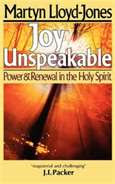Greater than Our Fears
An expository study of the book of Hebrews
Chapter 6
1. Therefore, leaving the discussion of the elementary principles of Christ, let us go on to perfection, not laying again the foundation of repentance from dead works and of faith toward God,
2. of the doctrine of baptisms, of laying on of hands, of resurrection of the dead, and of eternal judgment.
3. And this we will do if God permits.
Six foundational principles
Whenever I read these three verses in Hebrews, I always think of a classroom, in which the teacher is anxious for his or her class to advance and the greater part of the students want to learn. However, there are some people, usually sitting in the back of the room, who just don’t care. In fact, they create disturbances, hinder progress and they themselves have not even learned the basics of the course. This is a serious matter in the Kingdom of God, because there is a maxim at its core that says, “If you don’t go forward, you will surely regress.”
There are a couple things that we have to know in relation to this matter of progressing in the Christian walk. It does not mean that a believer leaves the gospel and goes on to ‘deeper’ things. It means that he goes deeper into the gospel. It does not mean that he leaves the foundation, but simply that he leaves off laying it, so that he can build upon it. In my version of the Bible, the NKJV, you will notice that it states, leaving the discussion, which seems to indicate that, in the writer’s teaching, he will now go on to more mature matters. Taking away the chapter division, it is a continuation of the subject of milk and solid food in the last verses previous to this chapter. Perfection in this case means maturity, which is precisely the subject matter at hand.
Commentator Warren Wiersbe said: “When I was in kindergarten, the teacher taught us our ABCs. You learn your ABCs so that you might read words, sentences, books – in fact, anything in literature. But you do not keep learning the basics. You use the basics to go on to better things.
Tuesday, November 24, 2020 | 0 Comments
Higher than the High Priest
Chapter 5
1. For every high priest taken from among men is appointed for men in things pertaining to God, that he may offer both gifts and sacrifices for sins.
2. He can have compassion on those who are ignorant and going astray, since he himself is also subject to weakness.
3. Because of this he is required as for the people, so also for himself, to offer sacrifices for sins.
4. And no man takes this honor to himself, but he who is called by God, just as Aaron was.
Defining high priesthood
In the first four verses, the writer defines the office of high priesthood. The Jewish Christians are very familiar with it, but they need to be reminded of its basic principles. Now we, who are less acquainted with Jewish priesthood, can learn and profit from his writing. It is consistent with human nature to be taken up with superficial details, surrounding the things into which God has placed us, and tend to forget the main purpose for which He created them.
The first consideration that we must understand is that a high priest was chosen among his peers. In order to fulfill the purposes of his position, he must have the inner qualities that will equip him for ministry. Because he is a part of the human race, he understands the inner trials and suffering of those, to whom he renders service. His ministry is lost, if he is not compassionate. It is a great lesson for all those, who take on leadership of any kind in the church. For one to simply take on the duties and responsibilities related to any office, is to miss the point completely. He must have a heart preparation, before entering into Christian ministry.
Wednesday, November 11, 2020 | 0 Comments
Greater than the Sabbath Day
An expository study of the book of Hebrews
Chapter 4
1. Therefore, since a promise remains of entering His rest, let us fear lest any of you seem to have come short of it.
2. For indeed the gospel was preached to us as well as to them; but the word which they heard did not profit them, not being mixed with faith in those who heard it.
3. For we who have believed do enter that rest, as He has said: “So I swore in My wrath, they shall not enter My rest,” although the works were finished from the foundation of the world.
4. For He has spoken in a certain place of the seventh day in this way: “And God rested on the seventh day from all His works”;
5. and again in this place: “They shall not enter My rest.”
6. Since therefore it remains that some must enter it, and those to whom it was first preached did not enter because of disobedience,
7. again He designates a certain day, saying in David, “Today”, after such a long time, as it has been said: “Today, if you will hear His voice, do not harden your hearts.”
8. For if Joshua had given them rest, then He would not afterward have spoken of another day.
9. There remains therefore a rest for the people of God.
10. For he who has entered His rest has himself also ceased from his works as God did from His.
11. Let us therefore be diligent to enter that rest, lest anyone fall according to the same example of disobedience.
Monday, November 02, 2020 | 0 Comments







 Recommended Books
Recommended Books



